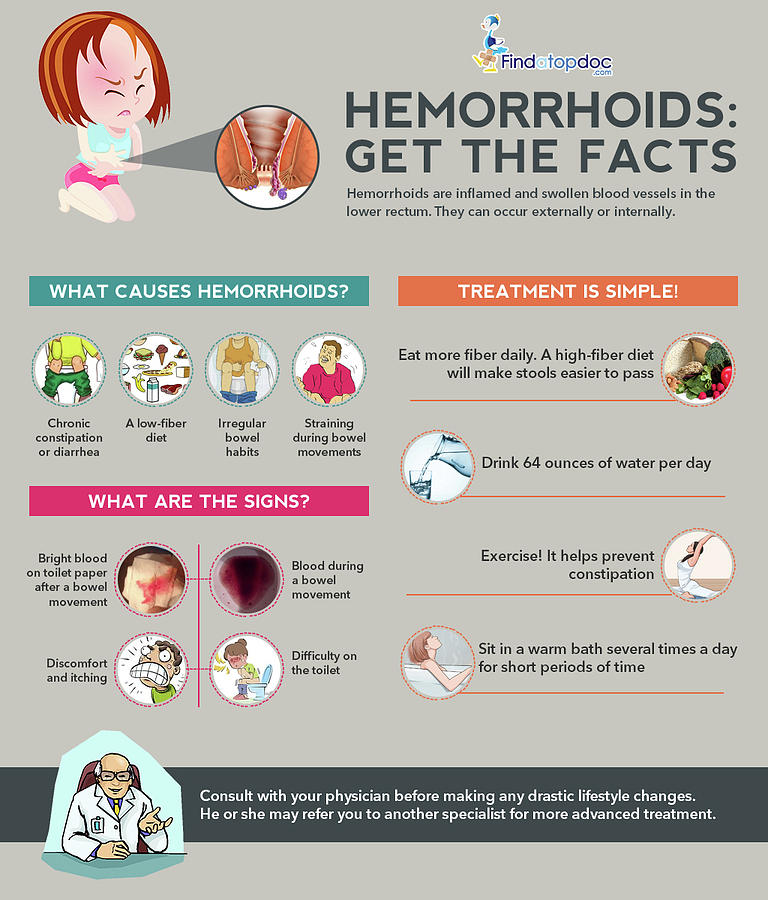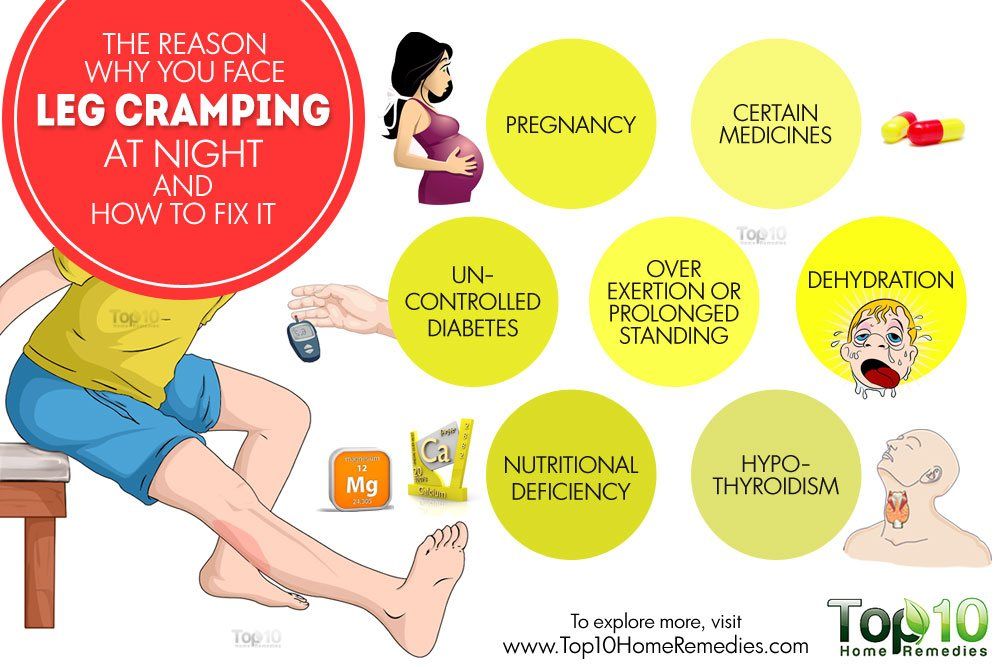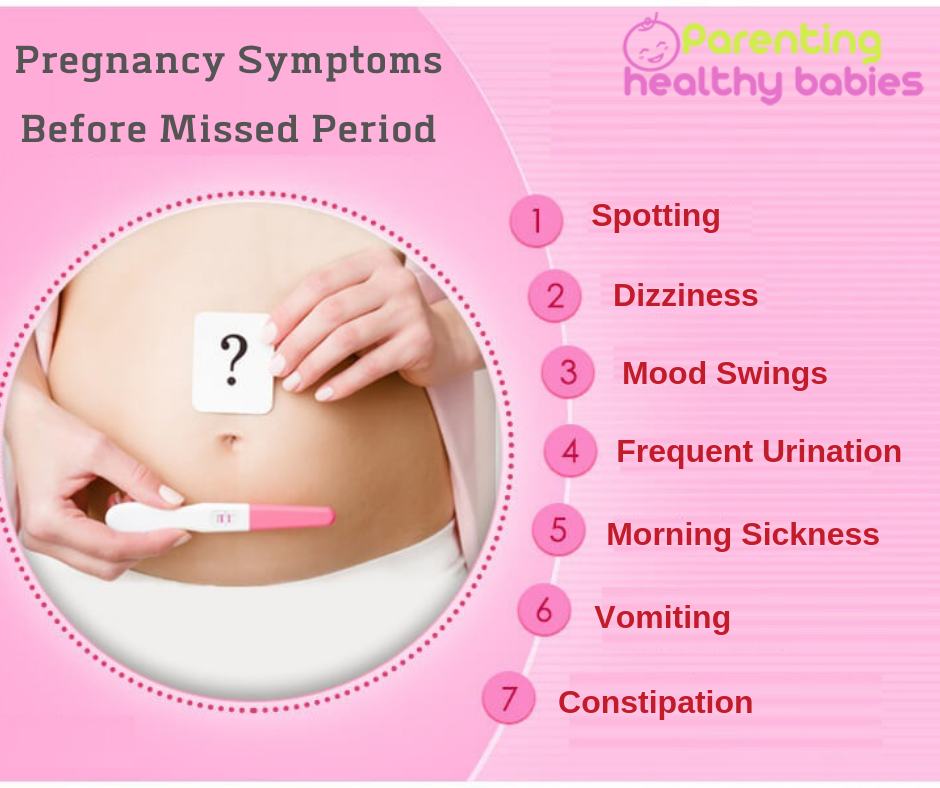Are hemorrhoids dangerous during pregnancy
Hemorrhoids During Pregnancy: Causes and Prevention
Hemorrhoids — swollen veins in the anus and rectum — are common during pregnancy, especially in the third trimester when the enlarged uterus puts pressure on the veins.
Hemorrhoids can be painful. They may also itch, sting, or bleed, especially during or after a bowel movement.
While your body is going through all sorts of physical changes during pregnancy, hemorrhoids can be one more unwanted irritation. But the good news is that they generally aren’t harmful to your health or the health of your baby, and they’re usually a short-term problem. Though pushing during labor can worsen hemorrhoids, they typically go away on their own after you give birth. (1)
Some women get hemorrhoids for the first time when they’re pregnant. But if you’ve had hemorrhoids before, you’re more likely to get them again when you’re pregnant.
What Can Cause Hemorrhoids During Pregnancy
As your unborn baby grows, your uterus gets bigger and begins to press against your pelvis. This growth puts a lot of pressure on the veins near your anus and rectum, and these veins may become swollen and painful as a result.
The increase in the hormone progesterone during pregnancy can also contribute to the development of hemorrhoids, as it relaxes the walls of your veins, making them more prone to swelling. An increase in blood volume, which enlarges veins, can also contribute to hemorrhoids during pregnancy. (1)
Three common additional causes of hemorrhoids during pregnancy include:
- Straining during bowel movements
- Straining from carrying extra pregnancy weight
- Sitting or standing for long periods of time
Hemorrhoids are most common in pregnant women who experience constipation.
As many as 38 percent of pregnant women become constipated at some point during their pregnancy, according to research published in the journal BMJ Clinical Evidence. (2)
One cause of constipation during pregnancy may be when the growing uterus pushes against the bowel.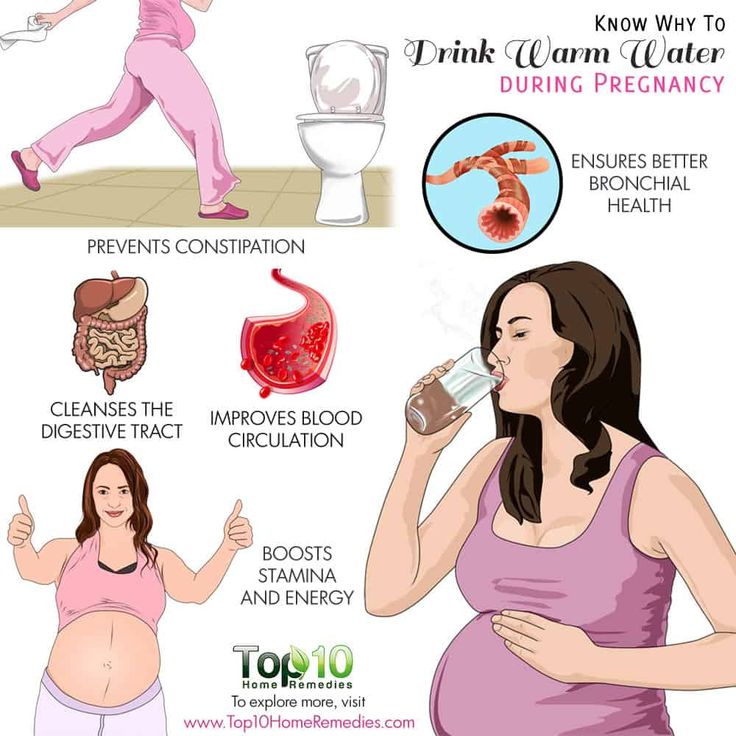 Iron supplements you may take can also contribute to constipation, so it’s worth trying to get the iron you need naturally through your diet. (3)
Iron supplements you may take can also contribute to constipation, so it’s worth trying to get the iron you need naturally through your diet. (3)
Pregnancy hormones can also slow down the movement of food through the digestive tract, making constipation more likely.
How to Prevent Hemorrhoids During Pregnancy
Avoiding constipation is key to preventing hemorrhoids during pregnancy. Here are some tips for preventing constipation:
Eat lots of high-fiber foods. There are plenty of good ways to incorporate more fiber into your diet. Fiber-filled foods include fruits like pears (especially when you include the skin), avocados, and berries; vegetables such as broccoli, artichokes, and Brussels sprouts; whole grains such as oatmeal, brown rice, quinoa, and even popcorn; legumes including various kinds of beans, lentils, and green peas; and don’t forget nuts and seeds.
RELATED: 11 High-Fiber Foods to Add to Your Diet
Drink plenty of fluids. Aim for 10 8-ounce glasses of water each day.
Aim for 10 8-ounce glasses of water each day.
Use the toilet as soon as you feel the urge. “Holding it in” can contribute to constipation.
Try not to sit or stand for long periods of time. If you sit down at work, make sure to get up and walk around for a few minutes every hour. At home, try to rest on your side when reading or watching TV, to relieve downward pressure on your rectal veins.
Ask your doctor about using a stool softener. This can help if other methods fail to ease your constipation. Using laxative pills for constipation is not recommended during pregnancy, as they can cause dehydration and might stimulate uterine contractions. (3)
Do Kegel exercises daily. Kegel exercises strengthen the pelvic floor muscles that help support your rectum and can improve circulation in the rectal area. You can do Kegel exercises just about anywhere — at home, in your car, at the office — but first you need to make sure you’re isolating and contracting the correct muscles.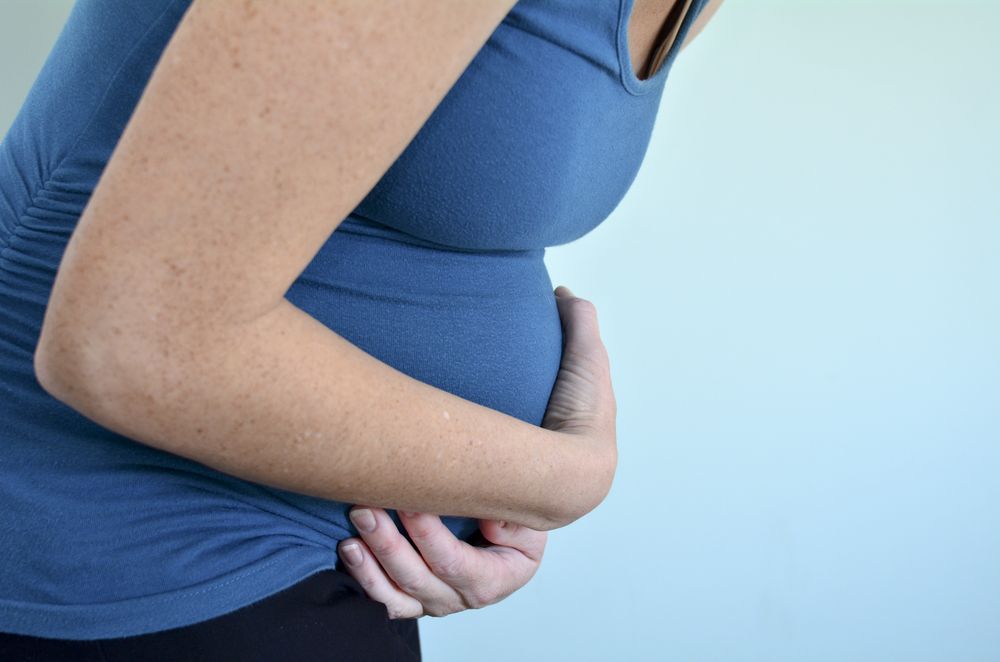
Identify the right muscles by stopping urination midstream. (This is strictly for the purpose of identifying which muscles we’re talking about — you don’t want to do Kegels while urinating, as this could increase your risk for a urinary tract infection). (4)
Once you know which muscles to use, tighten them and hold the contraction for five seconds. Then relax for five seconds. Work up to holding the contraction for 10 seconds. Try to do at least three sets of 10 reps a day.
RELATED: 10 Foods to Help Relieve Constipation
RELATED: Constipation Causes, Symptoms, and Relief
How to Treat Hemorrhoids During Pregnancy
Hemorrhoids usually get better on their own after pregnancy, but there are a number of things you can do to ease any itching and pain in the meantime:
Soak your rectal area in warm water several times a day. A sitz bath, or small basin that fits over the toilet seat, can help.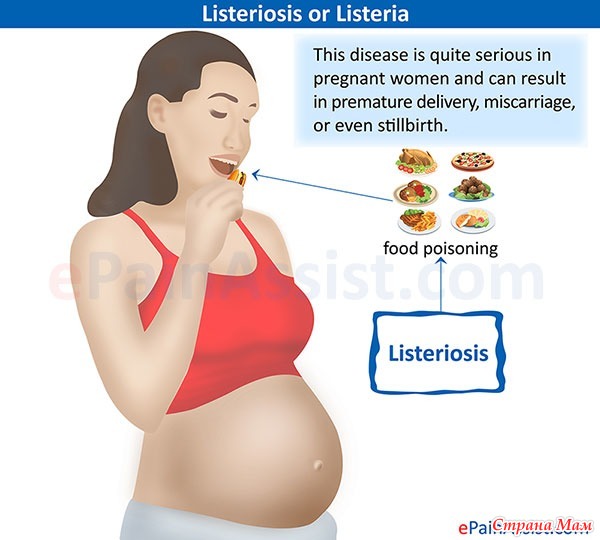 These devices can be purchased at most drug stores. You can also fill your regular bathtub with a few inches of warm water to create a similar effect.
These devices can be purchased at most drug stores. You can also fill your regular bathtub with a few inches of warm water to create a similar effect.
Apply ice packs or cold compresses to the area several times a day. The cold can reduce swelling and help relieve pain.
Keep the anus clean and dry. Try using moist towelettes or baby wipes to gently clean the area after bowel movements. This can be more gentle than dry toilet paper.
Be sure to pat — not wipe — the area dry after bathing or making a bowel movement. Excess moisture can cause irritation.
Apply baking soda (wet or dry) to the area to alleviate itching. (3)
Apply treatments containing witch hazel. Products like Tucks Medicated Cooling Pads can help keep the area clean and relieve pain and itching around the anus.
But before you use any products, be sure to ask your doctor or healthcare provider to recommend a topical hemorrhoid cream or medicated wipe that’s safe to take during your pregnancy.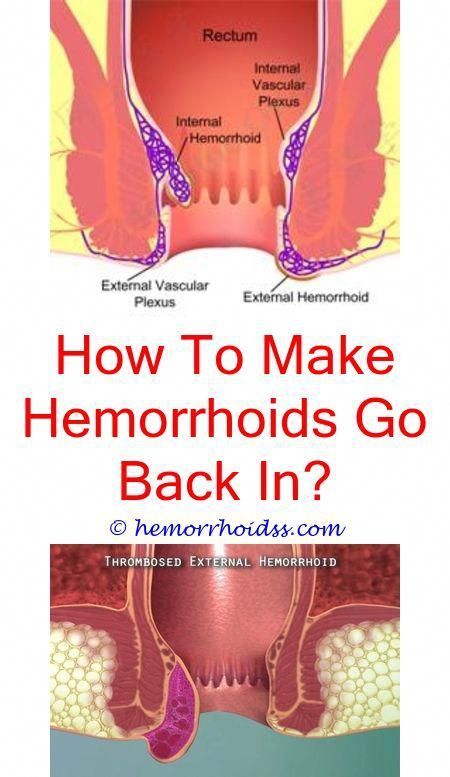
Additional reporting by Deborah Shapiro.
How to Choose the Right GERD Diet
Having smaller meals, eating slowly, and avoiding certain foods may help relieve symptoms of GERD.
By Mark Henricks
How to Soothe a Sore Behind When You’ve Got IBD
Some expert advice on caring for your tush, knowing what irritation means, and calling your doctor when necessary.
By Jordan M. Davidson
What Is Hernia? Symptoms, Causes, Diagnosis, Treatment, and Prevention
By Quinn PhillipsNavigating a Holiday Visit When You’ve Got IBD
By Jenny HarrisonWhat Are Hemorrhoids? Symptoms, Causes, Diagnosis, Treatment, and Prevention
By Lindsey KonkelTreatment for Hemorrhoids
Most hemorrhoids can be treated at home or with simple medical procedures.
By Lindsey Konkel
8 Myths You’ve Been Told About Hemorrhoids
By Mikel TheobaldPregnancy Hemorrhoids: Causes, Risks, Treatment
We include products we think are useful for our readers. If you buy through links on this page, we may earn a small commission. Here’s our process.
Healthline only shows you brands and products that we stand behind.
Our team thoroughly researches and evaluates the recommendations we make on our site. To establish that the product manufacturers addressed safety and efficacy standards, we:
- Evaluate ingredients and composition: Do they have the potential to cause harm?
- Fact-check all health claims: Do they align with the current body of scientific evidence?
- Assess the brand: Does it operate with integrity and adhere to industry best practices?
We do the research so you can find trusted products for your health and wellness.
No one likes to talk about them, but hemorrhoids are a fact of life for many people, especially during pregnancy. Hemorrhoids are simply veins inside or outside of your anus that have become large and swollen.
Also called piles, they can look like varicose veins when outside your body. Hemorrhoids develop frequently during pregnancy, especially in the third trimester and during and shortly after childbirth.
You may have hemorrhoids only during pregnancy, or you may have them at other times of your life as well.
The causes of your hemorrhoids may be unique to pregnancy. You can often treat or prevent hemorrhoids with home-based remedies and lifestyle adjustments.
There are two types of hemorrhoids: internal hemorrhoids and external hemorrhoids. Each type of hemorrhoid can have different symptoms.
Internal hemorrhoids
Internal hemorrhoids form inside your body, within the rectum. Because they are concealed in the rectum, they can be harder to diagnose.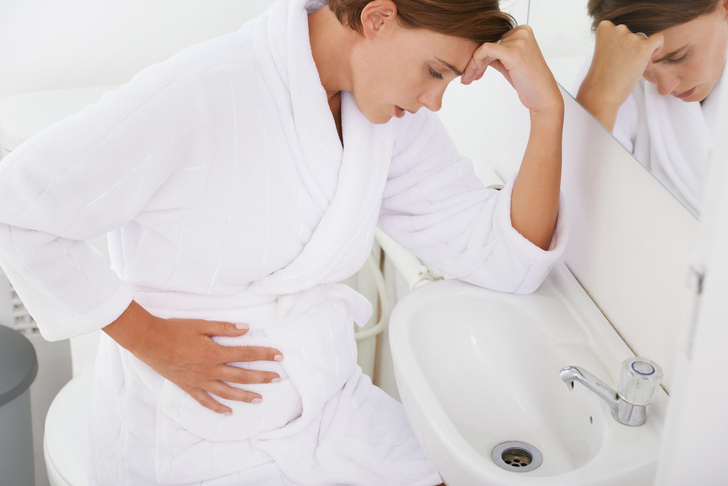 Some internal hemorrhoids can prolapse, meaning they extend outside of the anal opening.
Some internal hemorrhoids can prolapse, meaning they extend outside of the anal opening.
Although internal hemorrhoids can cause bleeding, they typically don’t cause pain. This is because they are located in an area that doesn’t have nerve endings. However, if an internal hemorrhoid prolapses, it can be extremely painful.
External hemorrhoids
External hemorrhoids form outside of your body. They’re located near the anus and covered by skin. This skin is extra-sensitive and can become inflamed.
An external hemorrhoid can hurt if it becomes swollen or develops a blood clot.
If a blood clot forms in a hemorrhoid, it can cause sudden, severe pain. The pain often gets worse within the first 48 hours, then improves over several days.
The symptoms of hemorrhoids can vary depending on the type of hemorrhoids you have.
Common hemorrhoid symptoms
- bleeding (you may notice blood when you wipe after a bowel movement)
- painful bowel movements
- a raised area of skin near your anus
- itching
- burning
- swelling
Generally, you will experience these symptoms with external hemorrhoids.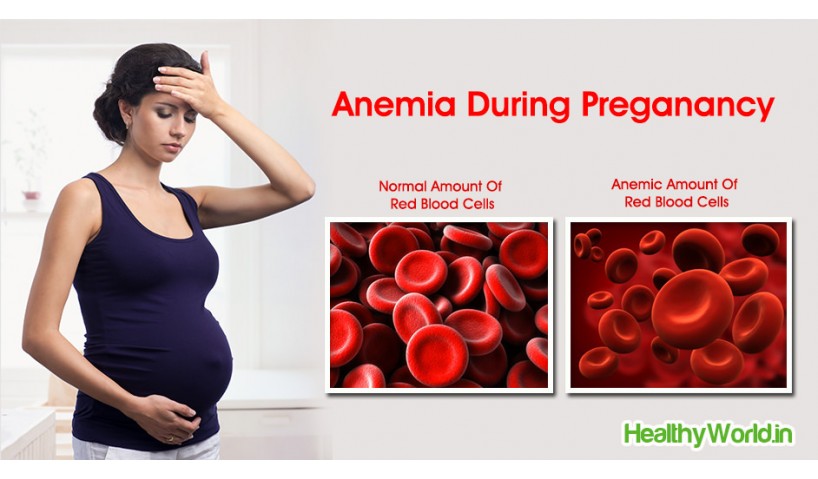 You may have no symptoms with internal hemorrhoids.
You may have no symptoms with internal hemorrhoids.
You may also develop a blood clot in an external hemorrhoid. This is known as a thrombosed hemorrhoid. They are generally hard, inflamed, and more painful.
It’s possible to push out an internal hemorrhoid when having a bowel movement. If this occurs, you may experience bleeding and discomfort.
Up to 50 percent of pregnant women develop hemorrhoids.
Causes
- increased blood volume, leading to larger veins
- pressure on veins near your anus from the baby and your growing uterus
- changing hormones
- constipation
You may be more susceptible to constipation during pregnancy than at other times of life. One 2014 study found that among 280 pregnant women, 45.7 percent experienced constipation.
This constipation may be due to:
- sitting for long periods of time
- changing hormones
- taking iron or other supplements
Your hemorrhoids may disappear completely after pregnancy and delivery without any treatment as your hormone levels, blood volume, and intra-abdominal pressure decrease after delivery.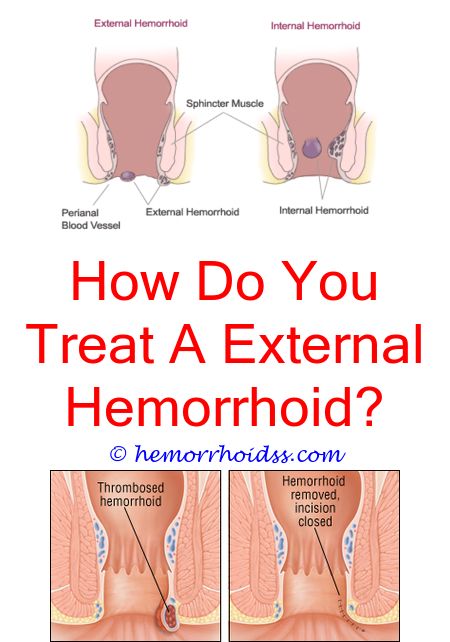
The most common times hemorrhoids develop during pregnancy is in your third trimester and during and immediately after childbirth. You may develop hemorrhoids from childbirth if you experience extended straining during the second stage of labor.
You can try many home remedies and lifestyle modifications to reduce hemorrhoids.
It’s best not to ignore them, though. Untreated hemorrhoids may get worse with time and cause complications such as increased pain or, in rare cases, anemia from bleeding.
You may need to reach out to a healthcare professional to diagnose and treat your hemorrhoids. Since hemorrhoids are not the only cause of bleeding near your anus, it’s always a good idea to speak with a doctor if you notice new bleeding when you wipe or in your stool.
Home remedies for hemorrhoids
There are many steps you can take at home to relieve and prevent hemorrhoids. Here are some ideas.
- Use wipes or pads that contain witch hazel.
- Use gentle, flushable wipes when you have a bowel movement.
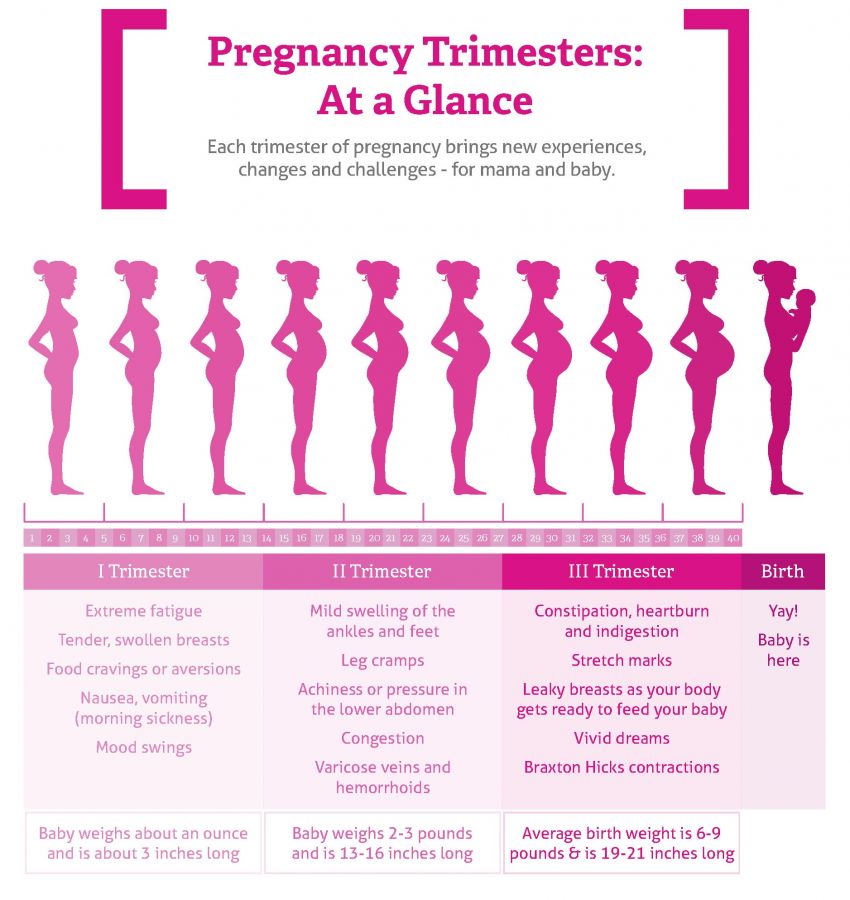
- Use a sitz bath or soak in clean warm water for 10 minutes at a time a few times a day.
- Take Epsom salt baths in warm water that’s not too hot.
- Hold an ice pack on the area for a few minutes several times a day.
- Move around frequently and try not to sit for too long to avoid extra pressure on your anus.
- Drink lots of water and eat foods high in fiber to help keep stools soft.
- Avoid straining while having a bowel movement or sitting on the toilet for long periods of time.
- Perform Kegel exercises to strengthen muscles.
You can shop for many of these items online:
- hemorrhoid pads
- flushable wipes
- sitz bath
- Epsom salt
- ice bags
You may want to speak with a doctor before treating hemorrhoids at home. This will ensure you get a proper diagnosis and understand the treatment options available to you.
Medical treatment for hemorrhoids
During pregnancy, always talk with your doctor before taking any medication, including those you apply to your skin (topical).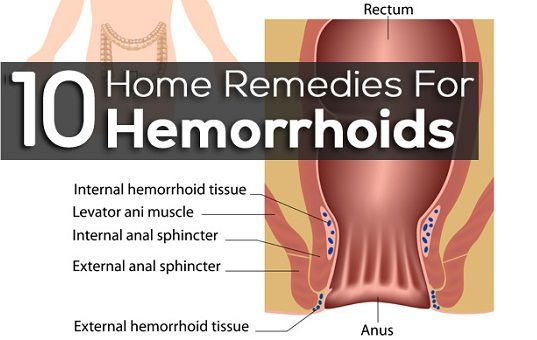 This will ensure treatments do not pose a risk to your baby.
This will ensure treatments do not pose a risk to your baby.
Topical over-the-counter or prescription treatments may help hemorrhoids. These medications often include pain-relieving or anti-inflammatory ingredients.
Creams or ointments that contain hydrocortisone-pramoxine can be especially effective for reducing pain, inflammation, and itching caused by hemorrhoids. But these ingredients may not be safe for pregnancy. Make sure to discuss them with a doctor.
The doctor may also be able to recommend a safe laxative or a suppository to relieve constipation.
Some prescription oral treatments, like ruto-sides and hidrosmine, are available for treating hemorrhoids, but they may not be safe during pregnancy or if you’re breastfeeding or chestfeeding.
Other medical treatment options for hemorrhoids includes:
- Rubber band ligation. During banding, a small rubber band is placed around the base of a hemorrhoid. The band stops the flow of blood into the hemorrhoid and eventually the hemorrhoid will fall off.
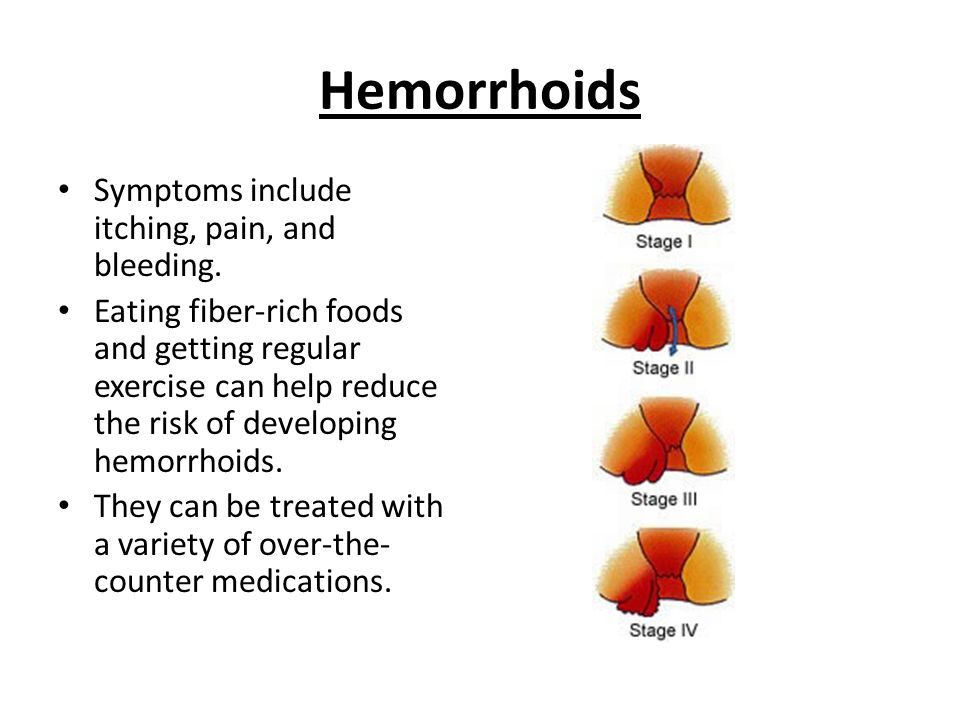 This usually takes 10 to 12 days. Scar tissue is formed during this process that helps prevent the hemorrhoid from recurring in that same location.
This usually takes 10 to 12 days. Scar tissue is formed during this process that helps prevent the hemorrhoid from recurring in that same location. - Sclerotherapy. A chemical solution is injected directly into the hemorrhoid. This causes it to shrink and to form scar tissue. It’s possible for a hemorrhoid to return after this treatment.
- Hemorrhoidectomy. A hemorrhoidectomy is a surgical procedure to remove hemorrhoids. It’s associated with several risks, including general anesthesia, risk of damage to the muscles of the anus, more pain, and a longer recovery time. As a result, this treatment is only recommended for severe hemorrhoids or when there are complications, such as multiple hemorrhoids or hemorrhoids that have prolapsed.
- Stapledhemorrhoidopexy. The hemorrhoidal tissue is placed back inside the anus and held in place using surgical staples.
Your doctor may suggest packing the site of the hemorrhoid with absorbent bandages to avoid excessive bleeding.
You can try to reduce hemorrhoids or prevent them from developing in several ways.
Prevention tips
- Eat a diet full of fiber-rich foods, like vegetables and fruits.
- Drink plenty of water to help keep your stools soft and your bowel movements regular.
- Avoid straining when using the toilet.
- Avoid sitting on the toilet for long periods of time.
- Pass a bowel movement as soon as you feel it coming — not holding it in or delaying.
- Move around as much as you can by exercising and avoid long periods of sitting.
- Talk with your doctor about adding a supplement to your diet that helps avoid constipation.
If you’re pregnant and think you have hemorrhoids, be sure to talk with your doctor about the symptoms you’re having.
Contact a doctor if you have:
- hemorrhoid symptoms that fail to improve after receiving treatment
- recurring hemorrhoids
- fever or chills
- pus oozing from your hemorrhoid
- severe bleeding or bleeding that won’t stop
- severe pain
Hemorrhoids during pregnancy are common. Seek medical treatment if you discover a hemorrhoid since they can get worse.
Seek medical treatment if you discover a hemorrhoid since they can get worse.
There are many home treatments you can try, but you may need medical treatment as well. Talk with your doctor about any treatment, including over-the-counter creams, to be sure it won’t affect your pregnancy.
After childbirth, your hemorrhoids may clear up on their own without any treatment.
Hemorrhoids in pregnancy: causes, symptoms, treatment
Despite the fact that hemorrhoids are more common in men than in women, there is a category of patients susceptible to this disease due to a special situation - pregnancy. Hemorrhoids in pregnant women occur mainly in the 2nd or 3rd trimester, as well as in the postpartum period. This vascular disease is associated with inflammation of internal or external hemorrhoids due to impaired venous outflow.
nine0006 Causes of hemorrhoids during pregnancy
The development of hemorrhoids in expectant and young mothers is promoted by many factors that are associated with the physiological changes that occur in a woman's body during the period of bearing a child and after childbirth. These factors include:
These factors include:
- Changes in hormonal levels - increased estrogen levels weaken the muscle tone of the vascular wall
- Enlargement of the uterus - leads to an increase in venous pressure
- Hereditary predisposition
- Age of the future mother - in pregnant women aged 20-30 years, hemorrhoids are detected in 20% of cases, after 30 years - in 50% of cases.
- Frequent constipation
- Decreased or inactive physical activity
- Birth process - during childbirth, compression of blood vessels in the pelvic area occurs, which can lead to prolapse or rupture of hemorrhoids.
nine0006 Symptoms of hemorrhoids in pregnant women
Experts report that some pregnant women may have asymptomatic hemorrhoids. In the rest, the disease usually manifests itself in the 2nd and 3rd trimesters of pregnancy. The main symptoms are:
- minor bleeding
- burning and anal itching
- discomfort and foreign body sensation
- pain during bowel movements
- in difficult cases - prolapse of internal hemorrhoids, the appearance of anal fissures, more profuse bleeding.
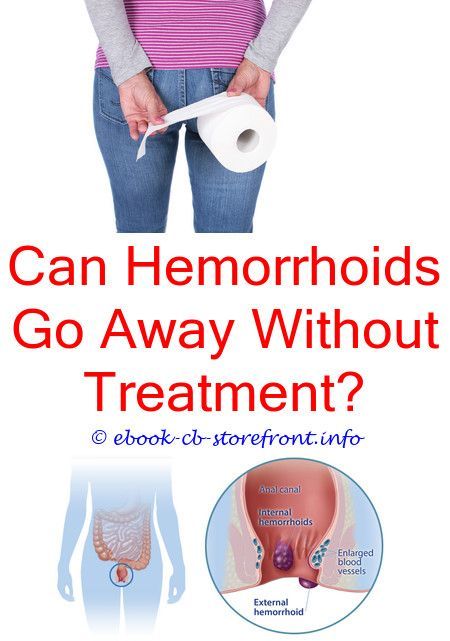 nine0016
nine0016
What is the danger of hemorrhoids in pregnant women
If you let the course of hemorrhoids in a pregnant woman take their own course, this can lead to serious consequences for the health of the fetus and expectant mother. Therefore, it is necessary to treat hemorrhoids at all stages.
Prolapsed hemorrhoids can cause venous rupture, anemia, and other complications that affect fetal development.
Constant constipation, straining with hemorrhoids lead to chronic spasm of the anal sphincter muscles and contributes to the formation of anal fissures. nine0003
Against the background of impaired blood circulation, hemorrhoidal thrombosis occurs, which, if left untreated, can lead to necrosis of the hemorrhoids.
Pregnant women need to be constantly monitored by a gynecologist and proctologist in order to detect signs of hemorrhoids in time and start treatment in the early stages.
Features of the treatment of hemorrhoids in pregnant women
The treatment of hemorrhoids in pregnant women requires a special approach.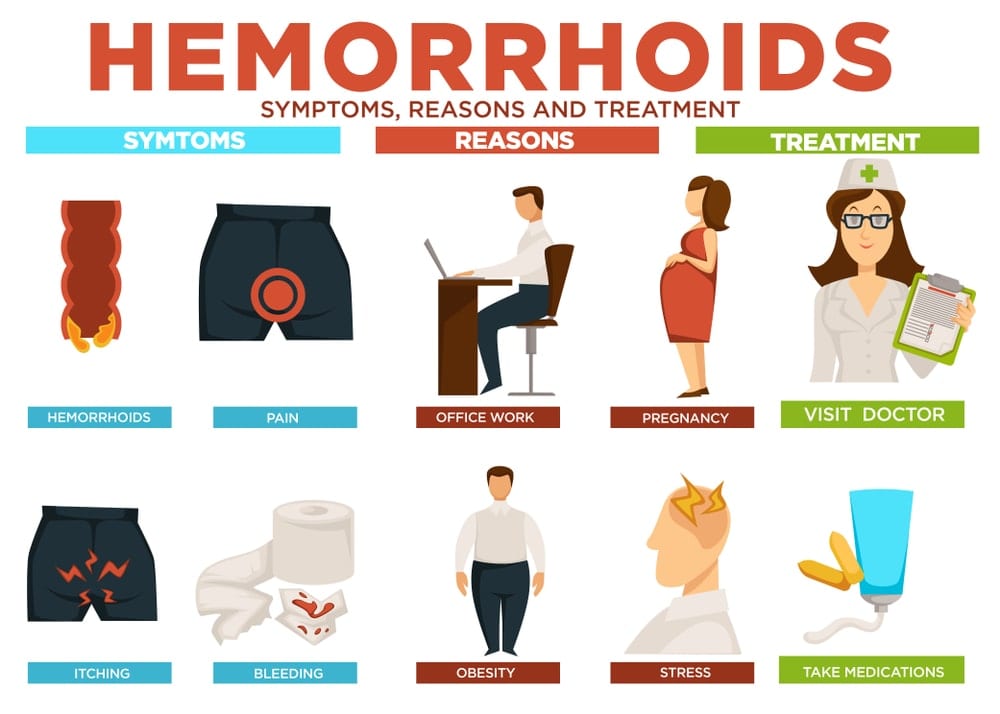 During pregnancy, there are many contraindications for the use of many medicines. Not all medicines, suppositories and ointments that are commonly used in the treatment of hemorrhoids are allowed for pregnant women. Such standard methods of stopping bleeding and treating hemorrhoids as sclerotherapy and laser coagulation are prohibited. nine0003
During pregnancy, there are many contraindications for the use of many medicines. Not all medicines, suppositories and ointments that are commonly used in the treatment of hemorrhoids are allowed for pregnant women. Such standard methods of stopping bleeding and treating hemorrhoids as sclerotherapy and laser coagulation are prohibited. nine0003
At the consultation of a proctologist, women who are carrying a child will be given an individual treatment in accordance with the current condition of the patient and taking into account the entire clinical picture.
In mild forms of hemorrhoids, pregnant women are prescribed special suppositories and ointments approved for use during pregnancy. Also, for the treatment of hemorrhoids in pregnant women, the doctor prescribes maintaining a special diet (consumption of foods with a high fiber content), increasing physical activity (swimming, walking), maintaining “wet” hygiene (using wet toilet paper and a hygienic shower).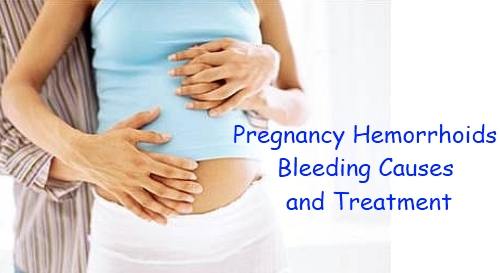 nine0003
nine0003
Every woman carrying a child should be aware of the possible consequences of self-treatment or lack of treatment of a particular problem. If any alarming symptoms occur, as well as as a preventive measure, it is necessary to make an appointment with a specialist proctologist.
At the Naedine Clinic, you will be assisted by qualified gynecologists and proctologists who will conduct an accurate diagnosis and prescribe an effective and safe treatment. Sign up for a consultation with a specialist by phone: (8332) 32-7777
Why are hemorrhoids dangerous during pregnancy?
Contents
- 0.1 Why does hemorrhoids appear during pregnancy?
- 0.2 What is the danger of hemorrhoids during pregnancy
- 0.3 signs, by which hemorrhoids can be recognized
- 1 Specialists of the gynecology department
- 1.1 Moiseeva Irina Arkadyevna
- 1.
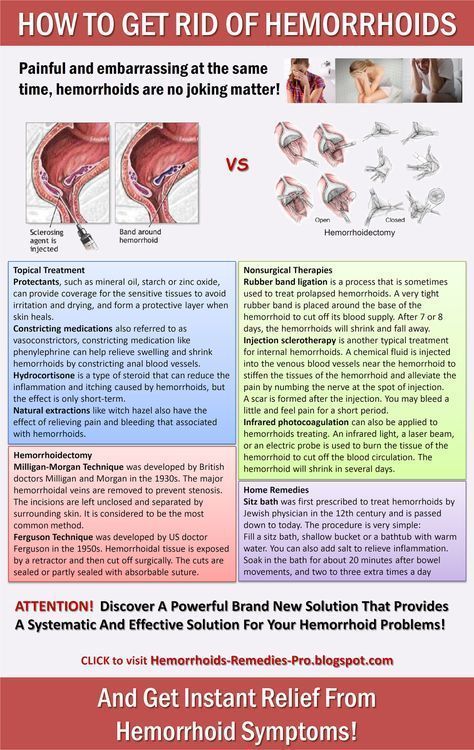 2 Krasilnikova Larisa Vladimirovna
2 Krasilnikova Larisa Vladimirovna - 1.3 Solovyeva Tatanina Serge0016
- 1.4 Morozov Kirill Vladimirovich
- 1.5 Klimova Yulia Nikolaevna
- 1.6 Romanova Lyubov Andreevna
- 1.7 Romanova Marina Ivanovna
Hemorrhoids are one of the most common diseases during pregnancy. According to statistics, about half of women who are expecting a child face this disease. This happens because during pregnancy, the uterus enlarges and compresses the veins of the pelvis, which disrupts the blood flow from the hemorrhoidal plexuses. nine0003
Why does hemorrhoids appear during pregnancy?
The most important factor during pregnancy is the increased stress on the woman's body. It is they who provoke the development of hemorrhoids, and childbirth exacerbates the problem even more.
The likelihood of developing the disease increases with the age of the patient. According to observations, after 30 years, about half of women face the problem. And also in connection with the number of births - after the third birth, about 80% of patients suffer from hemorrhoids. nine0003
And also in connection with the number of births - after the third birth, about 80% of patients suffer from hemorrhoids. nine0003
Constipation, which women often experience during pregnancy, also affects the likelihood of hemorrhoids. This is explained by the fact that during this period the amount of estrogen increases in the expectant mother and the motor activity of the intestine decreases.
A sedentary lifestyle of a pregnant woman also provokes venous stasis of blood in the pelvic organs.
Why is hemorrhoids dangerous during pregnancy
Since the increase in hemorrhoidal veins in a pregnant woman is associated primarily with the physiology of the body, in most cases hemorrhoids disappear or significantly decrease already 3-6 months after childbirth. nine0003
But if the problem is left without proper attention, it can bring considerable discomfort to the expectant mother due to thrombosis of external hemorrhoids, anal fissures and, at times, very severe pain, and is also fraught with the subsequent acquisition of the disease is already chronic.
So, with external hemorrhoids, enlarged external hemorrhoids swell. The blood circulation in them is disturbed, they are stretched, causing a woman severe discomfort. This often leads to thrombosis of hemorrhoids. In this case, the surrounding soft tissues become inflamed, which further increases the pain. nine0003
One of the last stages of neglected external hemorrhoids is necrosis, in other words, necrosis of the tissues of the hemorrhoidal node, this complication is already fraught with more dangerous consequences.
Internal bleeding hemorrhoids in some cases may affect the development of the child in utero. It can be complicated by bleeding and lead to anemia. Lack of oxygen, in turn, causes fetal hypoxia.
Signs by which hemorrhoids can be recognized
If a pregnant woman notices blood or pain during or after a bowel movement, while sitting or walking, as well as a feeling of prolapse or swelling of hemorrhoids in the anus, this may indicate prolapse of internal or enlargement and thrombosis of external hemorrhoids, as well as possibly an anal fissure.